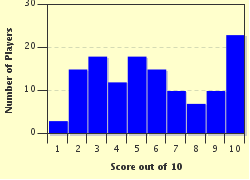Quiz Answer Key and Fun Facts
1. Which civilization carved its news on tablets or boards called "actas" from approximately 100 B.C.E. to 300 C.E.?
2. Which civilization circulated its news in Kaiyuan, handwritten on silk in the early 700s C.E.?
3. A letter from which explorer was one of the first long-distance news accounts when it was copied and distributed from Barcelona in 1493?
4. In 1541, a landslide or an earthquake in Guatemala was the topic of what was allegedly the first printed news account in the Americas. In which country was it printed?
5. In the sixteenth century, which city-state circulated a newsletter which is credited for linking the word "gazette" to newspapers?
6. In which language were the oldest surviving European newspapers written in 1609?
7. The oldest surviving English language newspaper was printed in which city in 1620?
8. According to the World Association of Newspapers, which country had the oldest newspaper still in publication at the beginning of the 21st century?
9. According to the World Association of Newspapers, which author was considered the first journalist with his publication of "The Review of the Affairs of France" from 1704 to 1713?
10. According to the International Coalition on Newspapers, in which language was the first native African language newspaper printed in 1837?
Source: Author
PDAZ
This quiz was reviewed by FunTrivia editor
gtho4 before going online.
Any errors found in FunTrivia content are routinely corrected through our feedback system.

